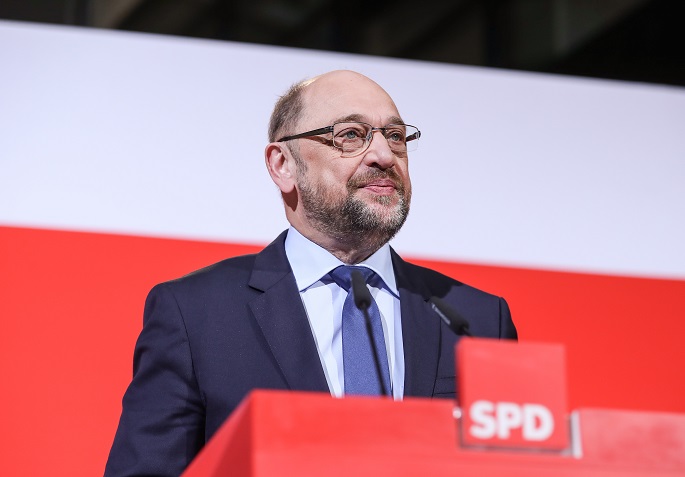Germany's SPD announces exploratory coalition talks with Merkel
Published : 16 Dec 2017, 02:42

Germany's Social Democratic Party (SPD) on Friday announced that it would start exploratory talks with the Conservatives Union for another grand coalition government.
Martin Schulz, chairman of the SPD, announced the decision at a press conference after a meeting of the party's executive committee, saying the talks would begin at the end of January in an open and constructively manner.
The SPD will convene a party congress on Jan. 14, when all of the party members will vote on the results of the exploratory talks and decide whether to go into the formal coalition talks.
The SPD decided to start open-ended talks with German Chancellor Angela Merkel's Christian Democratic Union (CDU) and its Bavarian sister Christian Social Union (CSU) that would lead to three options, including grand coalition, acceptance of a Union-led minority government, or snap elections if government formation fails.
Schulz said he would meet Merkel and other CDU and SPD leaders before Christmas to discuss the form the talks would take.
He said he was cautiously added that "there are different models of how a stable government can be formed."
SPD's decision is of great importance after the so-called "Jamaica coalition" talks between the Union, the Free Democratic Party and the Greens failed, leading to Merkel's worst political crisis as no new government could be formed for the time being since the Sept. 24 German federal elections.
Suffering the lowest vote rates since 1949, the SPD had repeatedly ruled out a grand coalition again with the Union after the current one and vowed to go into the opposition.
Merkel said after the breakdown of the Jamaica talks that she preferred a stable government, which ruled out a minority one without a coalition with other parties.
However, the Union and the SPD hold different grounds in some policies, especially immigration.
The SPD wants to retain the right of family reunion of successful asylum seekers, with which they can bring their family members to Germany, and opposes an annual ceiling for immigrants with the humanitarian reasons.
The CSU, which is at the front of Germany's southern borders, is against refugees' family reunion, and the Union had already agreed on a cap of immigrants of 200,000 every year.

